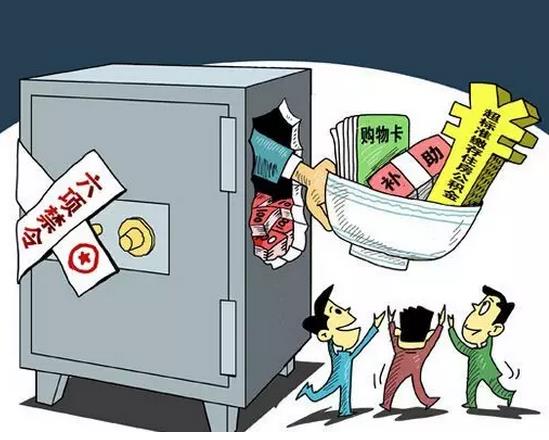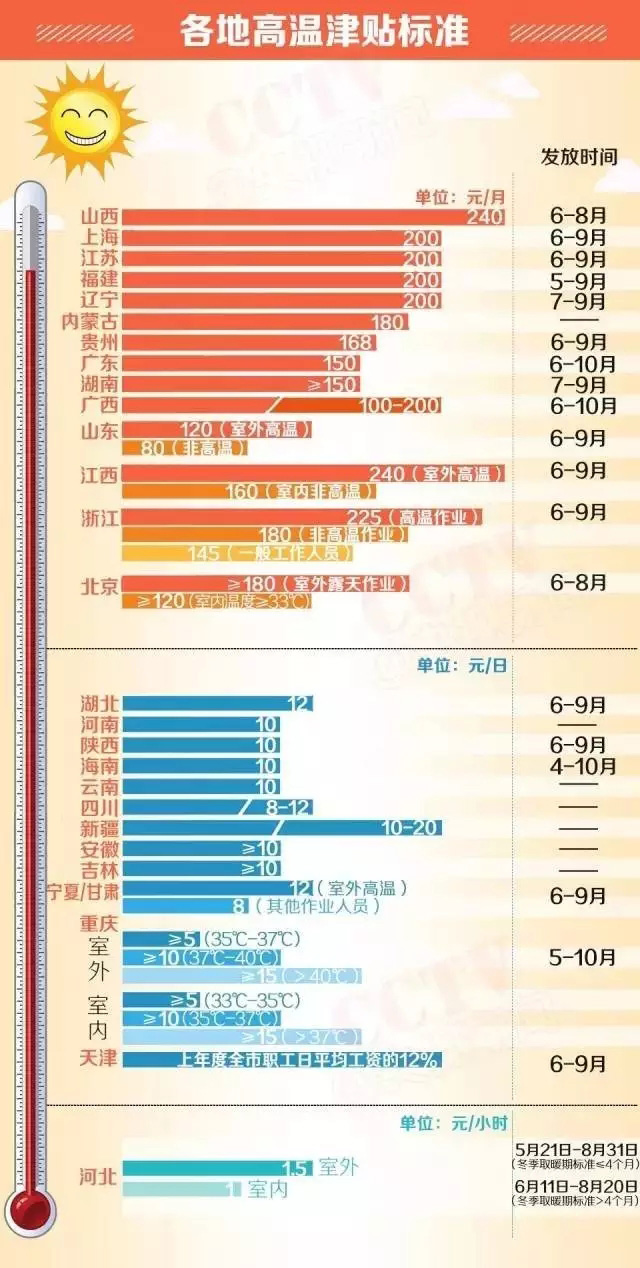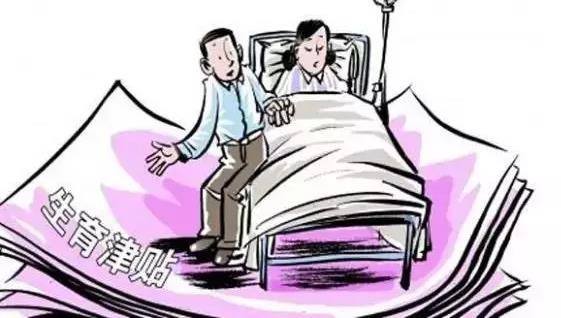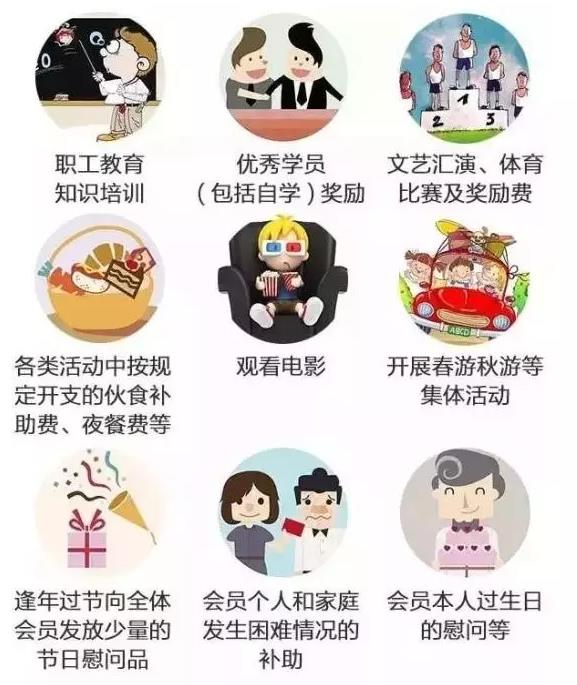Increase knowledge | How to distribute allowances and benefits without violating the rules? I’ll understand after reading it.
Cctv newsOn October 27th, the Commission for Discipline Inspection of Xiangtan City, Hunan Province reported the investigation and handling of the illegal payment of subsidies for Tianjin by the No.1 Commercial Office, the Vegetable and Meat Office, the Catering Office, the Electronic Office, the Light Industry Office and the Machinery Office. Twelve leading cadres at or above the deputy division level involved in the case violated the relevant regulations and paid subsidies for Tianjin in the name of duty subsidies, subsidies for maintaining stability and conference fees for restructuring work during the "two sessions", and were put on file for review and punished by party discipline and discipline.

How to issue subsidies, subsidies or benefits is not a violation of discipline? Let’s make clear the difference between these concepts — —
salaryRefers to the labor remuneration paid by the employer to the laborer in the form of money according to the relevant provisions of the state or the labor contract.
allowanceRefers to the form of wage supplement to compensate employees for labor consumption and extra expenses of living expenses under special conditions.
subsidyIt is a variety of subsidies paid to ensure that the wage level of employees is not affected by price increases or changes.

Simply put, allowances and subsidies are included in wages. There is no difference between subsidies and subsidies in essence, but subsidies are subsidies for daily living expenses, focusing on life; The allowance is the compensation for extra and special labor consumption, focusing on productivity.
How to pay the allowance without violating the rules?
high subsidies
According to the Management Measures for Heatstroke Prevention and Cooling Measures revised in 2012, if the employer arranges the workers to engage in outdoor open-air operations in high-temperature weather above 35℃ and cannot take effective measures to reduce the workplace temperature below 33℃, it shall pay high-temperature allowance to the workers.

Overtime allowance
Overtime pay is a legal obligation set by the law to the employer, but overtime allowance is different. It is a welfare system set by the employer to the employees of the enterprise. There is no mandatory requirement for overtime allowance by the law. The employer can decide whether to set up and implement the overtime allowance system according to the business characteristics and the needs of the enterprise.
Overtime allowance shall be subject to the principle of "no refund for more and no compensation for less"When the actual overtime pay is higher than the overtime allowance, the employer shall pay it according to the actual overtime pay; When the actual overtime pay is lower than the overtime allowance standard, the employer can pay according to the overtime allowance standard stipulated in the enterprise.

The question is, is there any overtime allowance for civil servants who work overtime? According to the provisions of Article 76 of the Civil Service Law, if civil servants work overtime outside the statutory working days, they shall be given corresponding compensatory time off, unless otherwise specified. Except for police, court and procuratorate staff.
In other words, civil servants (except the public security system) do not pay overtime pay for overtime work, but can arrange compensatory time off; The staff of police, courts and procuratorates can be subsidized according to the regulations if they work overtime.
Night shift allowance
Night shift allowance is an allowance standard to ensure the health of workers engaged in production at night and arouse the enthusiasm of frontline workers. Night shift usually refers to the situation in which an enterprise arranges workers to work for 2 hours or more from 22: 00 to 6: 00 the next day.

With regard to the night shift allowance, the state has not issued any relevant regulations, and various localities have issued corresponding standards, but the situation is uneven. Some provinces and cities, such as Jiangsu, Shandong, Fujian and other places, still implement the standards of the 1990s. Some provinces and cities, such as Tianjin, adjusted the night shift allowance standard in time according to social development.
Maternity allowance
Maternity allowance is the salary paid by maternity insurance fund to female employees during childbirth, that is, maternity leave salary. During the period of maternity leave, the unit may not pay their wages, and the wages during this period will be paid by the maternity insurance fund.

If the maternity allowance is higher than my maternity leave wage standard, the employer shall not deduct it; if the maternity allowance is lower than my maternity leave wage standard, the difference shall be made up by the employer. The amount of maternity allowance is directly related to the average monthly salary of workers in the unit where they work last year. The calculation method is:Maternity allowance = (the average monthly salary of employees in the previous year) ÷30× the specified number of holiday days.
old age allowance
Old age allowance is a social security system for the elderly. At present, most provinces in China have introduced the subsidy policy of old age allowance, and most provinces issue old age allowance or nutrition fee to local registered elderly people over 80 years old.
What other benefits are available?
In July 2014, the All-China Federation of Trade Unions issued the Notice on Strengthening the Management of Funds Revenue and Expenditure of Grass-roots Trade Unions, proposing that grass-roots trade unions can distribute a small amount of holiday condolences to all employees on holidays. Not long ago, the All-China Federation of Trade Unions issued the Supplementary Notice, which made more explicit provisions on some practical issues. For example, for the first time, it was made clear that "New Year’s Day" refers to seven statutory holidays stipulated by the state, including New Year’s Day, Spring Festival, Tomb-Sweeping Day, Labor Day, Dragon Boat Festival, Mid-Autumn Festival and National Day.
According to the regulations, the following benefits can be paid:

These expenses can’t be!
At the same time, it is clear that the following expenses cannot be:
1. Buy shopping cards, vouchers, etc., and engage in activities such as treating guests and giving gifts;
2, illegal spamming allowances, subsidies, bonuses;
3. Pay for high-consumption entertainment and fitness activities;
4. Set up a "small treasury" in violation of regulations;
5. Incorporate the trade union account into the unit administrative account, which makes the trade union expenditure out of control;
6. Interception and misappropriation of trade union funds;
7. Participate in illegal fund-raising activities or provide economic guarantee for illegal fund-raising activities;
8. Reimbursement of expenses unrelated to trade union activities.